Address
304 North Cardinal
St. Dorchester Center, MA 02124
Work Hours
Monday to Friday: 7AM - 7PM
Weekend: 10AM - 5PM
Address
304 North Cardinal
St. Dorchester Center, MA 02124
Work Hours
Monday to Friday: 7AM - 7PM
Weekend: 10AM - 5PM
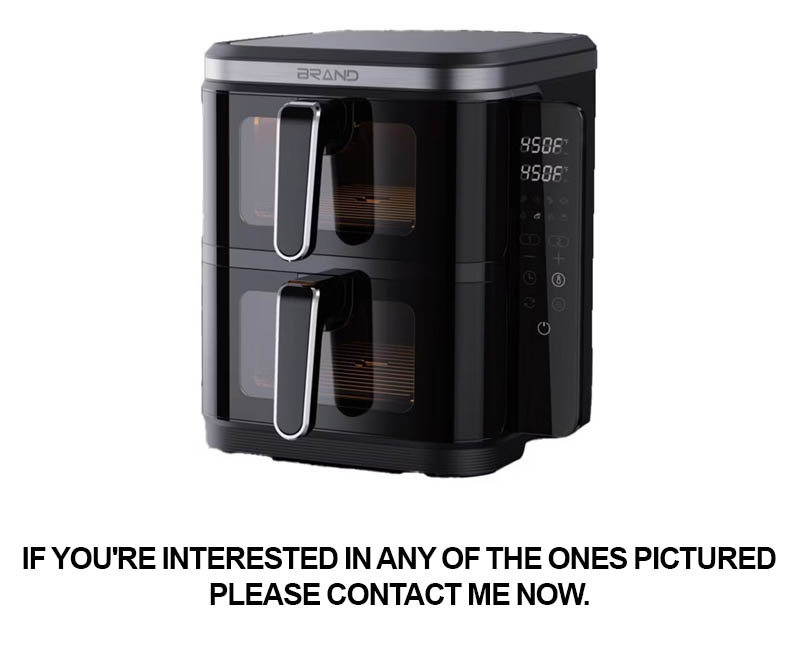
Navigating the world of kitchen appliances can be overwhelming, especially when it comes to finding the perfect air fryer. With countless brands and manufacturers vying for attention, it’s essential to recognize the qualities that distinguish a reliable air fryer factory from the rest. In this article, we delve into the key aspects to consider when seeking out a trustworthy source for your air fryer needs.
Choosing the right air fryer factory is an essential step in ensuring that you get a high-quality product. These appliances have become increasingly popular due to their health benefits and convenience, but not all air fryer factories are created equal. Understanding the importance of selecting a reliable factory can make a significant difference in the end product, customer satisfaction, and even your business success if you’re in the industry of distributing or selling air fryers.
Firstly, a reliable air fryer factory guarantees that the product you’re purchasing is made with quality materials and precision engineering. This means that the air fryers you get will be durable, safe, and efficient in cooking food with minimal oil. A factory that prioritizes quality control will have stringent testing processes in place to ensure each unit meets the highest standards.
Moreover, a reputable factory often invests in the latest technology and manufacturing techniques. This not only improves the efficiency of production but also leads to a more energy-efficient and environmentally friendly product. When you choose such a factory, you’re not just getting a fryer; you’re investing in a piece of technology that’s designed to last and contribute positively to the environment.
The reputation of an air fryer factory also speaks volumes about the products they produce. A well-established factory with a positive track record is more likely to deliver on its promises. This is especially important if you’re looking to build a brand or reputation of your own. Customers are more likely to trust products that come from a factory known for its reliable and consistent output.
When it comes to innovation, a reliable air fryer factory is more likely to be at the forefront of new designs and features. They understand the market trends and are constantly looking for ways to improve their products to meet customer demands. This means that you’re not just getting a standard air fryer but one that could potentially offer unique features or advantages over competitors.
Customer satisfaction is paramount in the consumer goods industry. A factory that takes pride in its work is more likely to produce air fryers that are user-friendly, easy to maintain, and deliver exceptional performance. This leads to happy customers who are more likely to recommend your product to others, thus boosting your sales and brand loyalty.
Moreover, a reliable air fryer factory is transparent about its operations. They are not afraid to share information about their materials, manufacturing processes, and even the environmental impact of their products. This level of transparency builds trust with both consumers and businesses looking to partner with the factory.
Another critical aspect is the factory’s ability to scale production. As demand for air fryers continues to rise, you want a factory that can meet your increasing orders without compromising on quality. A reliable factory will have the capacity to grow with your business, ensuring a steady supply of products when you need them.
Lastly, consider the support you’ll receive from the factory. A reliable air fryer factory understands that after-sales service is just as important as the product itself. They offer training, technical support, and a willingness to work with you to resolve any issues that may arise. This level of commitment can make a significant difference in your business operations.
In summary, the importance of a reliable air fryer factory cannot be overstated. From quality assurance to innovation, customer satisfaction, and after-sales support, the right factory can be the cornerstone of a successful business relationship. Whether you’re a consumer or a business looking to distribute air fryers, taking the time to find a reputable factory is an investment that pays off in the long run.

When searching for a reliable air fryer factory, there are several key qualities you should be on the lookout for to ensure you’re getting the best quality and service. Here’s what to consider:
Industry Experience: A factory with years of experience in manufacturing air fryers is likely to have a deeper understanding of the industry’s nuances. They’ve honed their craft and can offer insights into the latest technologies and market trends.
Advanced Manufacturing Techniques: The factory should employ cutting-edge manufacturing techniques to ensure precision and efficiency. Look for signs of automation, advanced machinery, and a focus on continuous improvement.
Robust Quality Control Measures: Quality is paramount in the air fryer industry. A reliable factory will have stringent quality control processes in place, including regular inspections, testing, and adherence to international standards.
Certifications and Compliance: Check if the factory holds relevant certifications such as ISO 9001 for quality management or CE for European safety standards. These certifications are a testament to their commitment to quality and safety.
Product Range and Customization: A diverse product line can indicate a factory’s ability to cater to different market needs. Additionally, the ability to customize products according to specific requirements can be a significant advantage.
Innovation and Research and Development (R&D): An air fryer factory that invests in R&D is likely to be at the forefront of technological advancements. This can mean better products, more efficient designs, and a competitive edge in the market.
Supply Chain Management: A reliable factory will have a robust supply chain that ensures timely delivery of raw materials and components. This reduces lead times and minimizes the risk of delays in production.
Customer Service and Support: Excellent customer service doesn’t just end with the sale. A factory that offers reliable after-sales support, including technical assistance and warranty services, is more likely to be trustworthy.
Environmental Responsibility: In today’s world, environmental concerns are paramount. A factory that practices sustainable manufacturing processes, uses eco-friendly materials, and minimizes waste is a positive sign of its overall commitment to responsible business practices.
Financial Stability: It’s important to ensure that the air fryer factory you’re considering is financially stable. This reduces the risk of supply chain disruptions and ensures long-term partnerships.
Scalability: A factory that can scale up production based on market demand is essential. This flexibility allows them to meet your needs as your business grows.
Cultural Fit: Lastly, consider the cultural fit between your company and the factory. A shared vision and business ethos can lead to more successful collaborations and smoother operations.
By focusing on these key qualities, you can narrow down your search to factories that are not only capable of producing high-quality air fryers but also align with your business values and goals. Remember, the right factory can be a valuable partner in your journey to success in the air fryer market.

When delving into the search for a reliable air fryer factory, understanding the background and reputation of the manufacturer is paramount. This involves a thorough examination of various factors that can paint a clear picture of their reliability and trustworthiness.
Historical Track RecordLook into how long the factory has been in operation. An established history can be a strong indicator of their stability and expertise. Check if they have a consistent presence in the market, which suggests a solid customer base and a commitment to quality.
Industry RecognitionResearch if the factory has received any awards or accolades within the industry. Recognitions from trade associations or consumer groups can signal that they are respected and reliable players in the market.
Customer FeedbackDive into online reviews and forums to gather insights from past and current customers. Look for patterns in the feedback, such as consistent praise for product quality, customer service, and delivery times. Negative reviews should be addressed promptly and professionally.
Certifications and StandardsVerify if the factory adheres to international quality standards and holds relevant certifications. This could include ISO certifications, CE marking, or other industry-specific accreditations that ensure the factory meets stringent quality control measures.
Supply Chain TransparencyA reliable factory should be transparent about their supply chain. This includes knowing where their components are sourced, the quality of these materials, and how they manage their inventory. A well-managed supply chain can prevent delays and quality issues.
Innovation and R&DLook into the factory’s commitment to research and development. A factory that invests in innovation is more likely to produce cutting-edge products and stay ahead of market trends. This can also indicate a focus on improving product quality over time.
Financial StabilityAssess the financial health of the factory. Check if they have a strong financial background, which can be an indicator of their ability to manage operations effectively and invest in the latest technologies and training for their workforce.
Legal ComplianceEnsure that the factory complies with all local and international laws and regulations. This includes labor laws, environmental regulations, and trade agreements. A factory that prioritizes legal compliance is more likely to be reliable and ethical in its business practices.
Partnerships and CollaborationsInvestigate the factory’s partnerships and collaborations. Associations with well-known brands or participation in industry events can be a sign of their credibility and willingness to engage with the broader market.
News and Media CoverageLook for any recent news articles or media coverage that mentions the factory. Positive press can indicate a good reputation, while negative stories might highlight areas of concern.
Social ResponsibilityConsider the factory’s stance on social responsibility. How they treat their employees, their environmental impact, and their contribution to local communities can be reflective of their overall business ethics.
Industry FeedbackEngage with industry experts and other manufacturers to get their insights on the factory. Peer recommendations can be invaluable and provide a different perspective on the factory’s reputation.
By thoroughly researching these aspects, you can gain a comprehensive understanding of the factory’s background and reputation, which is crucial in determining its reliability as a source for air fryer products.
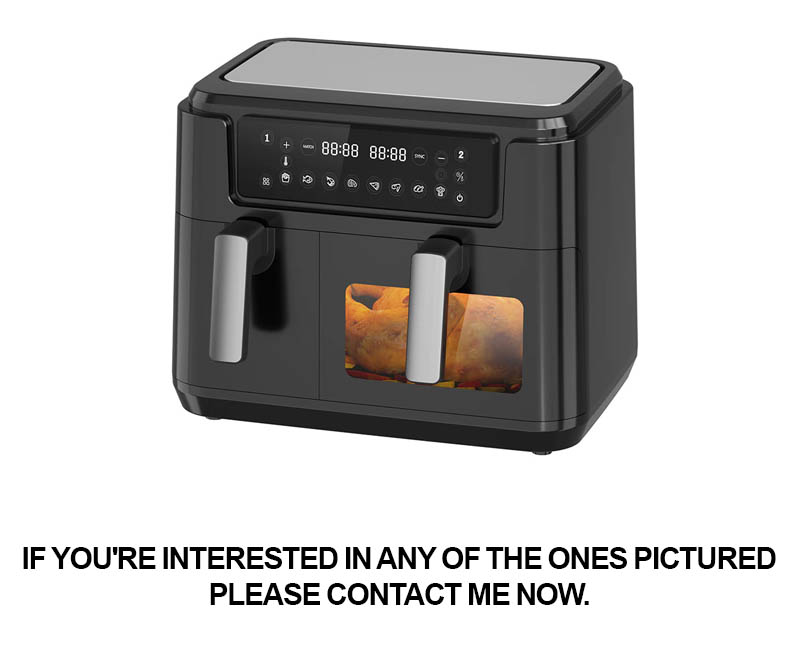
When delving into the world of air fryer manufacturing, the quality of the products is paramount. To ensure that the factory you choose lives up to the high standards you expect, here are some critical aspects to consider regarding quality control and standards:
The factory’s adherence to international quality standards is a vital starting point. Look for certifications like ISO 9001, which guarantees a systematic approach to managing quality across all operations. This certification is a clear sign that the factory has processes in place to consistently deliver products that meet customer requirements.
Inspect the factory’s internal quality control protocols. A reliable air fryer factory will have a stringent inspection process at various stages of production. This includes raw material checks, during assembly, and before the product is packaged and shipped. The presence of automated inspection systems or skilled quality assurance personnel can be indicative of a strong commitment to quality.
Understanding the materials used in the air fryer’s construction is crucial. High-quality factories will use durable, food-grade materials that are not only safe for cooking but also long-lasting. Look for stainless steel components, non-stick coatings that are free from harmful chemicals, and other materials that are known for their resilience and heat resistance.
The design of the air fryer also plays a significant role in its quality. A factory that invests in innovative design and engineering is likely to produce a product that is not only efficient but also user-friendly. Pay attention to the ease of use, safety features, and the overall build quality of the air fryers in question.
Customer feedback can be a powerful indicator of a factory’s quality standards. Check online reviews, forums, and social media to see what real users are saying about the air fryers produced by the factory. Look for patterns in the comments regarding durability, performance, and customer satisfaction.
A reputable factory will have a robust testing regimen. This can include performance tests, safety checks, and longevity trials. Look for evidence that the factory conducts these tests on a regular basis and has the capability to replicate real-world usage scenarios to ensure the air fryers can withstand everyday use.
The manufacturing process itself should be a reflection of the factory’s dedication to quality. This means the use of modern machinery, efficient assembly lines, and a well-trained workforce. A factory that invests in its employees through training and continuous improvement is more likely to produce high-quality products.
Don’t overlook the importance of the after-sales service. A factory that stands behind its products will offer a comprehensive warranty and customer support. This can include troubleshooting guides, replacement parts, and responsive customer service. The willingness to stand by its products is a strong sign of the factory’s confidence in its quality.
Lastly, consider the factory’s track record with regulatory compliance. Compliance with local and international regulations is not just about meeting legal requirements; it’s also about ensuring that the air fryers are safe for consumers. A factory that has a history of adhering to these regulations is more likely to maintain high standards throughout its operations.
By thoroughly examining these aspects of quality control and standards, you can gain a clearer picture of whether an air fryer factory is reliable and capable of producing the high-quality products you need.
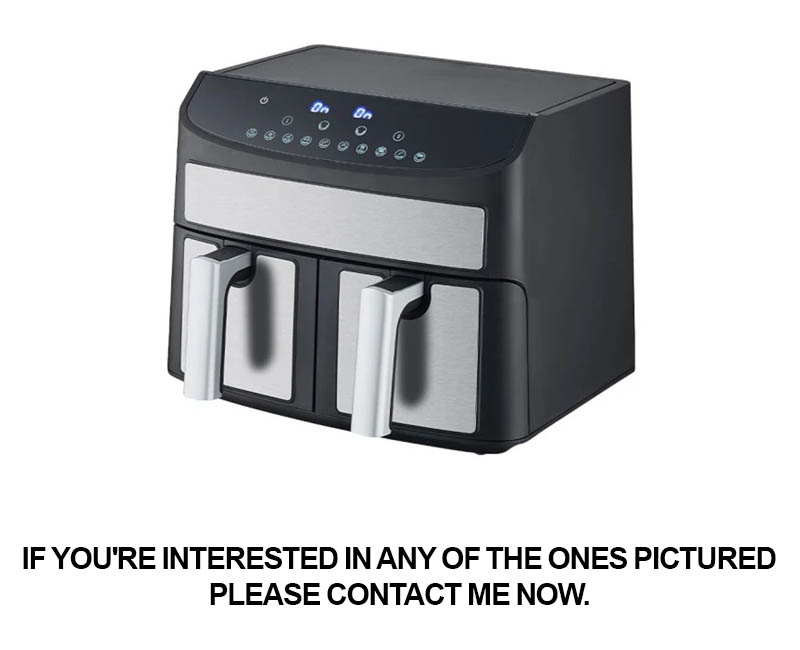
When it comes to selecting an air fryer factory, the diversity and innovation of their product range are vital. A robust and dynamic selection can mean the difference between a mundane market offering and a standout brand. Here are some key points to consider regarding product range and innovation:
An extensive product line speaks volumes about a factory’s commitment to catering to various consumer needs. It indicates that the factory is not just focused on a single product but is instead investing in research and development to bring a variety of options to the table. This could include different sizes of air fryers, models with various cooking capabilities, and even eco-friendly versions that appeal to health-conscious consumers.
The presence of niche products can also be a significant indicator of a factory’s innovation. Niche products are those that cater to specific consumer demands or preferences. For instance, if an air fryer factory offers a model specifically designed for commercial use in restaurants, it shows that they understand the industry’s unique requirements. Similarly, a factory that introduces air fryers with smart features, like WiFi connectivity or voice control, is likely at the forefront of technological advancements.
Innovation isn’t just about adding new features; it’s also about improving existing ones. Look for factories that have made strides in efficiency, such as reducing energy consumption or cooking times. This kind of innovation can not only make your product more appealing to consumers but also contribute to a more sustainable future.
The design of the air fryers is another area where innovation can be seen. A factory that invests in sleek, modern designs that are not only functional but also aesthetically pleasing is likely to resonate well with consumers. It’s not just about the air fryer itself; it’s about how the product fits into the kitchen and the lifestyle of the user.
A reputable air fryer factory will also have a product range that reflects a deep understanding of market trends. This means they are not just producing air fryers but also considering the broader context of how these appliances are used. For example, they might offer models that are specifically designed for batch cooking, or ones that are easy to clean due to the popularity of quick and effortless meal prep.
When it comes to safety, a factory that prioritizes innovation will be at the forefront of implementing the latest safety features. This could mean using non-toxic materials, ensuring that all parts are BPA-free, or developing air fryers with temperature control systems that prevent overcooking or fires.
Another sign of a factory’s innovation is their willingness to adapt to new technologies and incorporate them into their products. This could mean using materials that are more durable, such as reinforced plastics or metals, or integrating smart technology that allows for remote control and monitoring of the cooking process.
Lastly, a factory’s approach to after-sales service can also be a reflection of their innovation. Offering extended warranties, providing easy-to-access replacement parts, and having a responsive customer support team are all indicators that they value the consumer experience and are continuously looking for ways to improve it.
In conclusion, when evaluating an air fryer factory, pay close attention to their product range and the level of innovation they demonstrate. A wide array of products that cater to different needs, combined with a commitment to technological advancements and consumer convenience, is a powerful combination that can set a factory apart from its competitors.

Navigating through the vast array of air fryer options can be overwhelming, but it’s crucial to find a manufacturer that not only offers a wide range of products but also embraces innovation. When evaluating an air fryer factory, here’s how to gauge their commitment to both a diverse product line and cutting-edge technology:
Varying Models and FeaturesA reliable air fryer factory should have a variety of models to cater to different consumer needs. From compact countertop units to larger, family-sized fryers, the range should reflect the diversity of customers’ living spaces and preferences. Look for features like adjustable temperature settings, various cooking modes, and smart technology that allows for remote monitoring and control.
Technology IntegrationThe integration of modern technology is a hallmark of an innovative air fryer factory. Features like digital displays, programmable timers, and energy-saving modes demonstrate a factory’s dedication to improving user experience. It’s also important to see how the technology aligns with current trends, such as compatibility with smart home systems or the use of eco-friendly materials.
Unique Selling PointsInnovation isn’t just about adding new features; it’s about creating unique selling points that set a product apart. A factory that introduces unique solutions, such as non-stick coatings that last longer or unique air circulation systems for more even cooking, shows a commitment to pushing the boundaries of air fryer design.
Market Trends and AdaptabilityA factory that stays ahead of the curve will often reflect market trends in their product offerings. This could mean a focus on health and wellness with models that use less oil or have healthier cooking options. It could also mean adapting to consumer demands for convenience, such as models that offer one-touch cooking or automatic shut-off features.
Customization OptionsA factory that offers customization options, whether it’s through a range of finishes, size variations, or specific features, shows a willingness to cater to niche markets and individual preferences. This level of flexibility can be a sign of a manufacturer that values innovation and customer satisfaction.
Ongoing Product DevelopmentInnovation is a continuous process. A reliable factory will have a history of ongoing product development, with a pipeline of upcoming models and features. This indicates a commitment to staying relevant in a fast-paced market and a dedication to improving existing products.
Collaborations and PartnershipsLook for evidence of collaborations with other companies or industry experts. Partnerships can lead to the creation of co-branded products or the integration of new technologies that enhance the air fryer experience.
Customer Feedback and Product EvolutionA factory that listens to customer feedback and evolves its products based on this input is likely to be innovative. Pay attention to how the factory responds to market demands and whether they have a track record of improving their products over time.
Industry RecognitionAwards and accolades from respected industry organizations can be a testament to a factory’s commitment to innovation. These recognitions often highlight products that have made significant strides in design, functionality, or technology.
Investment in Research and DevelopmentFinally, a factory that invests heavily in research and development (R&D) is likely to be at the forefront of innovation. Look for information about R&D initiatives and how they contribute to the product line’s evolution.
By considering these aspects, you can better assess whether an air fryer factory is truly innovative and whether their product range aligns with your expectations for a modern, high-quality kitchen appliance.
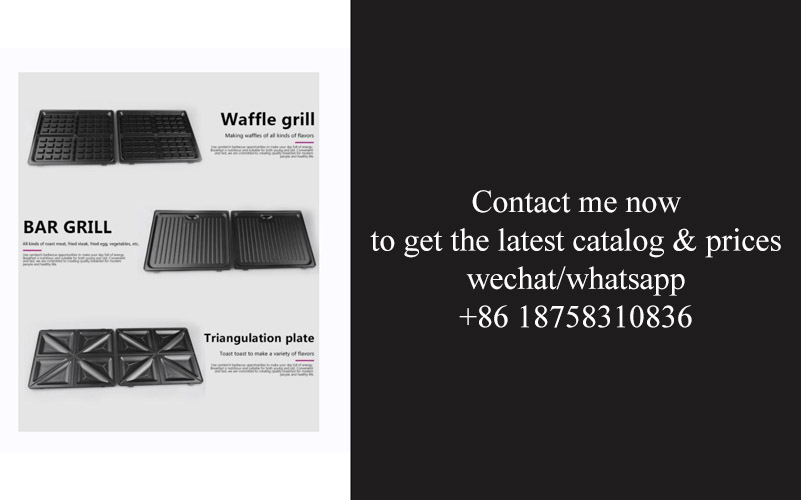
Finding the right air fryer factory often hinges on the pricing and value it offers. Here are some insights into how to navigate this aspect:
Understanding Pricing Structures: Pricing can vary greatly from one air fryer factory to another. It’s important to understand the structure behind these prices. Are they fixed, or do they fluctuate based on volume, customization, or other factors? Knowing this can help you anticipate future costs and plan accordingly.
Comparative Analysis: Never settle for the first price you encounter. Shop around and compare quotes from different factories. This will give you a baseline for what’s considered standard in the industry and help you identify any unusually low or high prices that might be red flags.
Value Beyond Cost: Sometimes, the cheapest option isn’t necessarily the best. Consider the overall value you’re receiving for your money. This includes the quality of the air fryers, the reliability of the factory, and the level of customer service provided. Value is about getting what you pay for, and sometimes paying a bit more can lead to a more robust, longer-lasting product.
Long-Term Cost Considerations: While upfront costs are important, don’t forget to consider the long-term costs. This includes maintenance, potential repairs, and the lifespan of the air fryers. A higher-quality product might have a higher initial cost but could save you money in the long run due to reduced maintenance and a longer operational life.
Volume Discounts: If you’re looking to purchase air fryers in bulk, negotiate for volume discounts. Many factories offer reduced prices per unit when buying in large quantities, which can significantly lower your total cost.
Additional Services: Some factories include additional services in their pricing, such as assembly, packaging, or even customization. While these can add to the cost, they might be worth it depending on your specific needs and the quality of service provided.
Market Trends: Keep an eye on market trends. Prices can fluctuate due to changes in demand, supply chain disruptions, or the introduction of new technologies. Being aware of these trends can help you time your purchases to take advantage of better deals.
Financial Transparency: A reputable air fryer factory should be transparent about their pricing. They should be able to explain how their costs are structured and how they determine their prices. This transparency is a sign of a business that values integrity and customer trust.
Negotiation Strategies: Don’t hesitate to negotiate. While some prices are fixed, others might have room for negotiation. Be prepared with your research and have a clear understanding of your budget and what you’re willing to pay.
Return on Investment: Consider the return on investment (ROI) when evaluating pricing. A higher-quality air fryer might have a higher upfront cost, but it could also provide better performance, efficiency, and longevity, which can result in a superior ROI over time.
Warranty and Support: The cost of a warranty and after-sales support can be a significant factor in the overall value for money. A factory that offers comprehensive warranty coverage and excellent customer support is often worth the extra cost.
Quality of Materials: The type and quality of materials used in the air fryers can greatly impact their lifespan and performance. Pay attention to the materials used and how they contribute to the overall value you’re getting.
By carefully considering these aspects of pricing and value for money, you can make a more informed decision when selecting an air fryer factory, ensuring that you’re getting the best possible product for your investment.
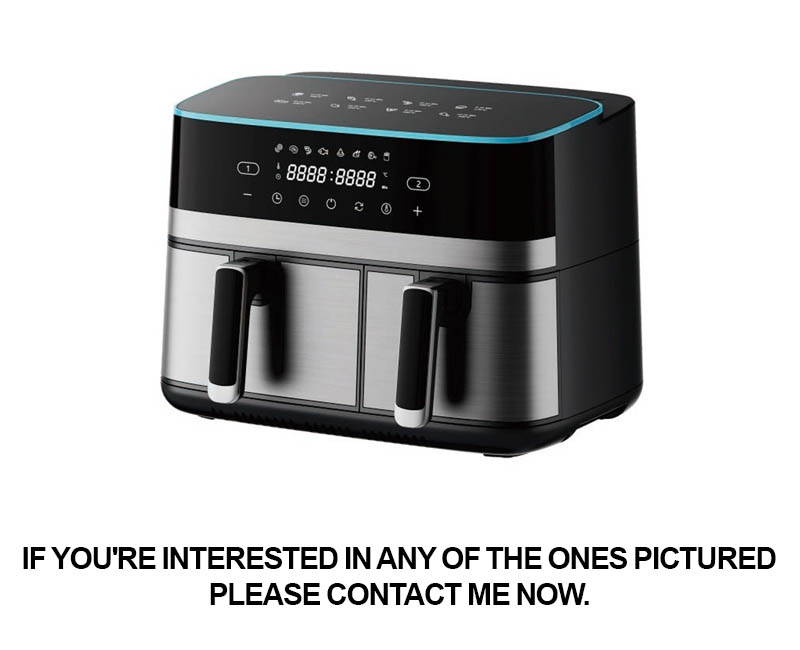
When selecting an air fryer factory, the way they communicate and provide support is a silent indicator of their commitment to customer satisfaction.
A factory’s responsiveness in addressing inquiries, concerns, and issues can greatly impact the overall experience. Timely communication ensures that any potential problems are quickly resolved, fostering trust between the factory and its customers.
Customer service is not just about solving problems but also about the level of attentiveness and dedication shown. A factory that is always available to assist, whether it’s through phone calls, emails, or live chat, demonstrates a level of professionalism and dedication to customer needs.
A reliable factory will offer comprehensive support throughout the product lifecycle, from pre-sales advice to after-sales service. This includes guiding customers on the correct usage of products, providing maintenance tips, and offering troubleshooting assistance.
Feedback is a two-way street. A good air fryer factory encourages customers to share their experiences, both good and bad, and uses this feedback to improve. This level of openness and willingness to adapt shows a commitment to continuous improvement and customer satisfaction.
A factory’s willingness to stand behind their products is crucial. Offering warranties and ensuring that these warranties are easy to claim reflects the confidence the factory has in the quality of their air fryers.
Technical support is also key, especially for more complex air fryers. Having a dedicated team of experts available to assist with any technical issues can be the difference between a satisfied customer and one who feels abandoned.
The quality of communication can also be an indicator of the factory’s overall business culture. A factory that communicates effectively with its customers is likely to have a streamlined internal process, which can lead to better product development and management.
In an increasingly digital world, the presence of an online help center or knowledge base is invaluable. It allows customers to find answers to common questions without having to wait for a response. This proactive approach to customer service shows a commitment to efficiency and customer convenience.
Lastly, the ease with which a factory handles custom requests can also say a lot about their communication and support. Being receptive to modifications or special orders indicates a level of flexibility and adaptability that is often a sign of a customer-focused business.
In summary, the way an air fryer factory communicates and supports its customers is a critical factor in determining its reliability and trustworthiness. It reflects not only their approach to problem-solving but also their culture of customer service, which is ultimately what sets a great factory apart from the rest.
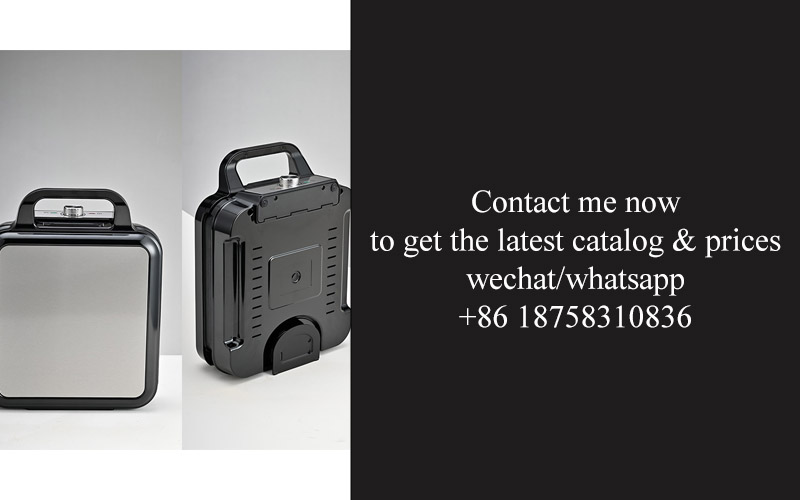
Understanding the depth of a factory’s expertise often requires more than a glance at their catalog. When it comes to air fryer factories, a thorough investigation of their background and reputation can be the difference between a quality product and one that falls short. Here are some key aspects to consider:
Historical Perspective: Delve into the factory’s history. How long have they been in the business? A longer-standing presence can indicate stability and experience. Look for any milestones or awards they’ve received over the years, which can highlight their commitment to quality and innovation.
Industry Recognition: Check if the factory has been recognized by industry associations or has patents for their technology. This can be a strong indicator of their technical prowess and dedication to excellence.
Clientele: Look at the types of clients they work with. Do they supply to well-known brands or retailers? A diverse client base can suggest that they have a wide range of capabilities and can meet various quality standards.
Market Presence: Consider where their products are sold. Are they available in multiple countries, indicating a global reach? This can be an indication of their understanding of international market demands and compliance with various standards.
Online Presence: Today, a robust online presence is a must. Check their website for comprehensive information about their products, certifications, and contact details. A professional, informative site can reflect their attention to detail.
Testimonials and Case Studies: Look for any testimonials or case studies that showcase their work. Real-world examples of how they’ve delivered on their promises can be very insightful.
Networking: Engage with industry professionals who might have dealt with the factory. Personal recommendations can carry a lot of weight and provide a firsthand perspective on their reputation.
Social Responsibility: Assess their commitment to social and environmental responsibility. This includes ethical labor practices, environmental sustainability, and community involvement. A factory that cares about these issues can often be trusted with quality and integrity.
When evaluating an air fryer factory, the quality control and standards they uphold are paramount. Here’s why and how to assess them:
Certifications: Look for internationally recognized certifications such as ISO 9001 for quality management and ISO 14001 for environmental management. These certifications ensure that the factory adheres to stringent standards.
Inspection Protocols: Ask about their inspection protocols. Do they perform in-process inspections, final product inspections, and batch testing? A factory that inspects at multiple stages is more likely to catch and rectify issues before they become significant.
Raw Materials: Investigate the source of their raw materials. High-quality materials are crucial for the longevity and performance of air fryers. A factory that partners with reputable suppliers is more likely to maintain high standards.
Continuous Improvement: A good factory should be committed to continuous improvement. They might use statistical process control (SPC) to monitor and control the quality of their products over time.
Training Programs: The factory should have comprehensive training programs for their employees. Well-trained staff are more likely to produce high-quality products.
Supplier Management: How they manage their suppliers is a reflection of their commitment to quality. A factory that rigorously evaluates and manages their suppliers is less likely to compromise on quality.
When selecting an air fryer factory, the product range and the level of innovation they offer can make a significant difference. Here’s what to consider:
Variety: A diverse range of air fryers caters to different customer needs. Look for a factory that offers various sizes, styles, and features to appeal to a broader market.
Unique Features: Innovative features can set a product apart. A factory that continuously invests in research and development to add unique features like smart controls, energy efficiency, or health benefits can be a great choice.
Customization: The ability to customize products is also important. This could mean offering different color options, capacity sizes, or even integrating new technologies based on customer feedback.
Design and Aesthetics: Aesthetics play a crucial role in consumer appeal. A factory that invests in design and ensures their products are not only functional but also visually appealing can attract more customers.
Market Trends: Staying ahead of market trends is key. A factory that keeps up with the latest consumer preferences and incorporates them into their product line is more likely to remain competitive.
Customer reviews and testimonials are invaluable in gauging the reliability of an air fryer factory. Here’s how to interpret them:
Consistency: Look for consistency in positive reviews. If the majority of customers praise the same aspects of the factory’s products or services, it’s a good sign.
Context: Pay attention to the context of the reviews. Are customers satisfied with the quality, customer service, and after-sales support? These are all important factors.
Negative Feedback: Even the best companies can have a few negative reviews. What’s crucial is how the factory responds to them. Do they acknowledge the issue and work to resolve it?
Testimonials: Genuine testimonials from satisfied customers can be very persuasive. Look for videos or written statements that come from real people who have used the factory’s products.
When considering pricing, it’s not just about the cost but also about the value for money. Here’s how to weigh the two:
Competitive Pricing: Compare the prices of the factory’s air fryers with similar products from other manufacturers. If they are significantly cheaper, it might be due to lower quality materials or manufacturing processes.
Cost-Benefit Analysis: Consider the cost of the product over its lifetime. A more expensive air fryer might have a longer lifespan, fewer repairs, and lower energy costs, which could make it a better value in the long run.
Quality vs. Price: Sometimes, a higher price can mean better quality. Be wary of factories offering air fryers at prices that seem too good to be true.
Warranty and Support: A longer warranty period or better customer support can indicate that the factory stands behind their product, which can be a sign of good value.
Effective communication and reliable support are non-negotiable when working with an air fryer factory. Here’s what to look for:
Response Time: A factory that responds promptly to inquiries is likely to be attentive to customer needs. This is especially important if you’re dealing with an international supplier.
Clear Communication: Look for clarity in their communication. Are they able to provide detailed information about their products, services, and pricing? Good communication can prevent misunderstandings and ensure smooth transactions.
Customer Support: Check if they offer customer support services and how accessible they are. Are there multiple channels for support (phone, email, chat)? This is crucial for any post-purchase inquiries or issues.
Training and Documentation: A factory that provides comprehensive training and clear documentation for their products is committed to ensuring that their customers can use their products effectively.
Follow-Up: A good factory will follow up with you even after the transaction is complete. This demonstrates their commitment to customer satisfaction and long-term relationships.
Scheduling a sourcing visit or inspection can provide a firsthand look at the factory’s operations. Here’s what to expect and how to prepare:
Purpose of Visit: Define what you want to achieve with the visit. Are you looking for quality control, production capacity, or a deeper understanding of their processes?
Preparation: Before you go, gather all necessary information about the factory, including their products, certifications, and customer testimonials.
Factory Tour: During the tour, observe the cleanliness, organization, and efficiency of the factory. Pay attention to the machinery and how it’s being used.
Meet the Team: Spend time with the factory’s staff to gauge their expertise and willingness to collaborate.
Ask Questions: Don’t hesitate to ask questions about their processes, quality control measures, and any concerns you might have.
Documentation: Take detailed notes and photos during your visit. This will be valuable for future reference and decision-making.
Follow-Up: After the visit, compile your findings and discuss them with your team or stakeholders. Use this information to make an informed decision about whether to continue working with the factory.
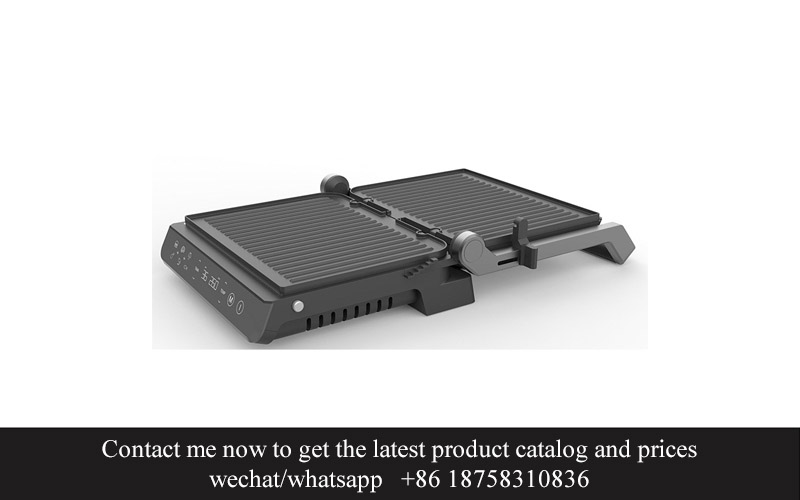
Navigating the complexities of the global market, it’s vital to ensure that the air fryer factory you choose adheres to stringent legal standards and ethical practices. This not only guarantees that you’re getting a quality product but also supports a sustainable and responsible supply chain. Let’s delve into the nuances of these considerations.
Understanding the regulatory landscape for your industry is crucial. This involves being aware of local, national, and international laws that govern the manufacturing and distribution of air fryers. Different regions have varying regulations regarding safety, labor rights, environmental impact, and product standards. A factory that is well-versed in these laws and actively complies with them is a good sign of its reliability.
Ethical practices are equally important. This encompasses the treatment of workers, the sourcing of materials, and the overall impact on the environment. A factory that values ethical considerations is likely to have a more sustainable approach to business. Look for evidence of fair labor practices, including fair wages, safe working conditions, and the absence of child labor or forced labor.
Transparency in supply chains is another key indicator. A reputable factory should be open about where and how its products are made. This includes being able to trace components back to their original source, ensuring that no unethical practices are involved in the supply chain.
Certifications can provide a clear picture of a factory’s commitment to legal and ethical standards. Look for certifications such as ISO 9001 for quality management, ISO 14001 for environmental management, and SA8000 for social responsibility. These certifications can give you peace of mind that the factory meets certain global standards.
The factory’s approach to environmental sustainability is also a critical factor. This includes how it manages waste, its energy consumption, and its use of environmentally friendly materials. A factory that has a recycling program, uses renewable energy, or invests in green technologies demonstrates a commitment to reducing its ecological footprint.
Additionally, consider the factory’s stance on animal welfare. If you’re sourcing products that involve animal parts or byproducts, a factory that adheres to strict animal welfare standards is preferable. This includes ensuring humane treatment of animals, ethical sourcing of raw materials, and avoiding the use of endangered species.
Ethical practices also extend to the factory’s relationship with its community. A factory that supports local initiatives, donates to charity, or invests in the community’s development is likely to be more socially responsible. This can reflect positively on the quality of the products it produces.
It’s also important to consider the factory’s response to legal and ethical challenges. A factory that has faced criticism in the past but has taken steps to address these issues and improve its practices is a better choice than one that ignores them. This shows a willingness to learn and adapt.
Lastly, when evaluating a factory’s legal and ethical compliance, don’t just rely on certifications and statements. Engage in conversations with the factory’s representatives to understand their policies and practices better. Ask about their code of conduct, their approach to resolving conflicts, and their commitment to ongoing improvement.
By thoroughly examining a factory’s legal compliance and ethical practices, you can ensure that your business is aligned with values that go beyond just profit. It’s about making a positive impact, both for your customers and for the world at large. Remember, the factory you choose reflects on your brand, and a commitment to legal and ethical standards can enhance your reputation and customer trust.

Understanding the nuances of pricing and the value for money when sourcing from an air fryer factory is a critical aspect of making an informed decision. It’s not just about finding the cheapest option, but rather identifying the best balance between cost and quality. Here’s a deeper dive into what to consider:
The Cost FactorCosts can vary widely between different air fryer factories, and this can be due to a multitude of factors. It’s important to understand that a lower price might not always equate to better value. Cheaper factories might cut corners on materials or labor, leading to a shorter lifespan or less reliable performance of the air fryers.
Quality vs. PriceWhen evaluating pricing, it’s essential to weigh the quality of the product against the cost. High-quality air fryers often come with a higher price tag, but they can offer better performance, durability, and safety features. Look for a factory that offers a good balance between affordability and quality.
Volume DiscountsIf you’re planning to purchase a large quantity of air fryers, consider whether the factory offers volume discounts. Many manufacturers are willing to negotiate prices for bulk orders, which can significantly reduce the overall cost per unit.
Long-Term CostsThink beyond the initial purchase price. Consider the long-term costs associated with the air fryers, such as maintenance, repair, and energy consumption. A higher-quality air fryer might have a higher upfront cost but could save you money in the long run due to lower maintenance and energy usage.
Value-Added ServicesSome factories offer additional services that can enhance the value of your purchase. This could include custom branding, packaging, or after-sales support. These value-added services can make the difference between a good deal and an exceptional one.
Market ResearchBefore finalizing your choice, do some market research. Look at the prices offered by different factories and compare them to the market average. This will give you a better understanding of what is considered standard and what might be overpriced.
Understanding the Pricing StructureAsk for a detailed breakdown of the pricing structure. This should include the cost of the air fryers themselves, any additional features or components, shipping fees, and taxes. Transparency in pricing can help you make a more accurate assessment of the value you’re receiving.
NegotiationDon’t be afraid to negotiate. If the price seems steep, see if there’s room for discussion. A good factory will be willing to work with you to find a mutually beneficial agreement.
Consider the Brand ReputationThe reputation of the brand can also impact pricing. Established brands might charge more due to their name recognition and quality standards. However, sometimes new or lesser-known brands offer high-quality products at more competitive prices.
Financial StabilityAssess the financial stability of the factory. A factory that is financially secure is more likely to be able to provide consistent quality and service over the long term, even if their prices are slightly higher.
Remember, the cheapest option isn’t always the best. Sometimes, investing a bit more upfront can save you money in the long run by ensuring you get a product that meets your needs and lasts. Always prioritize value for money, not just the lowest price.